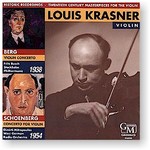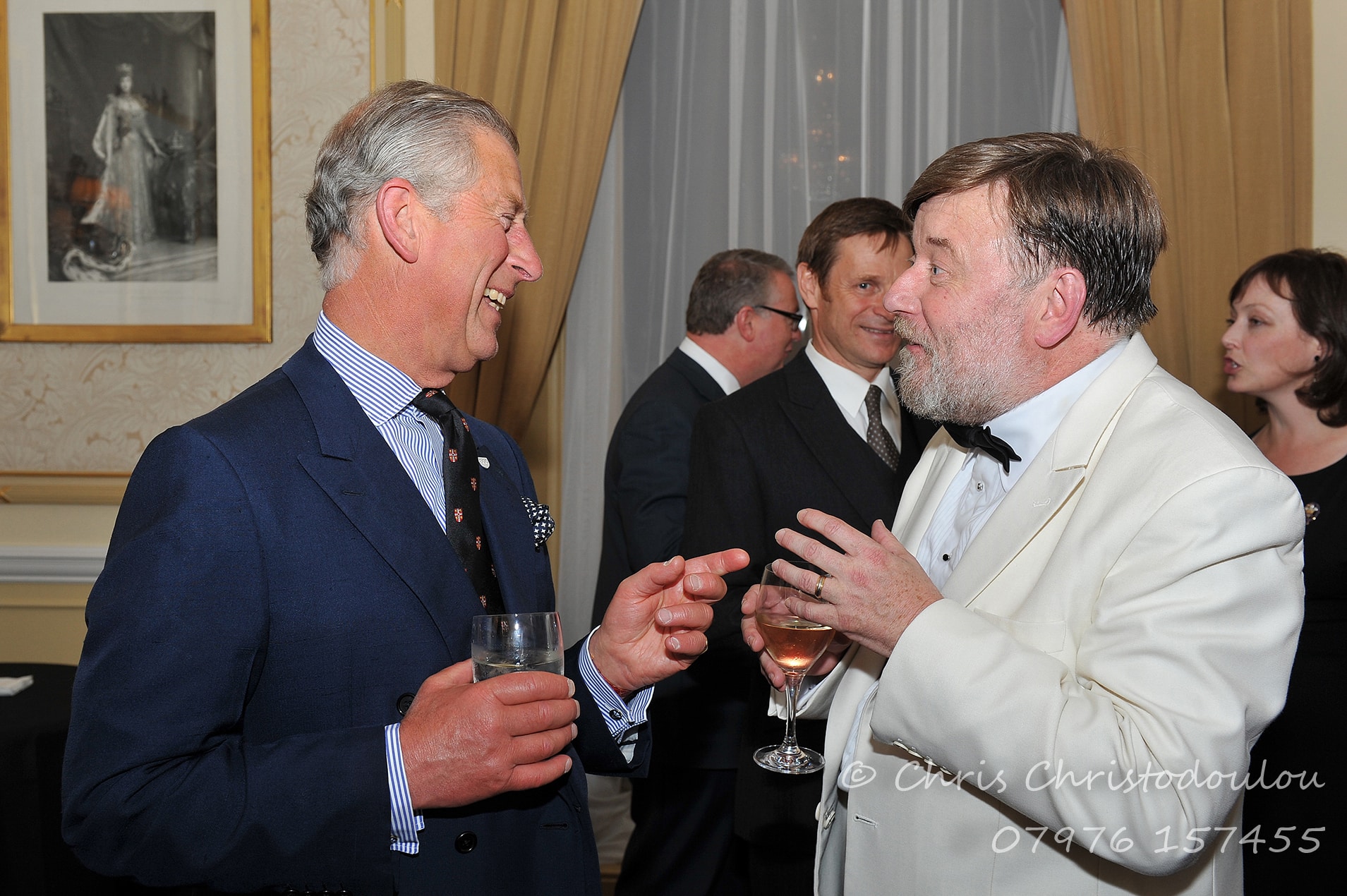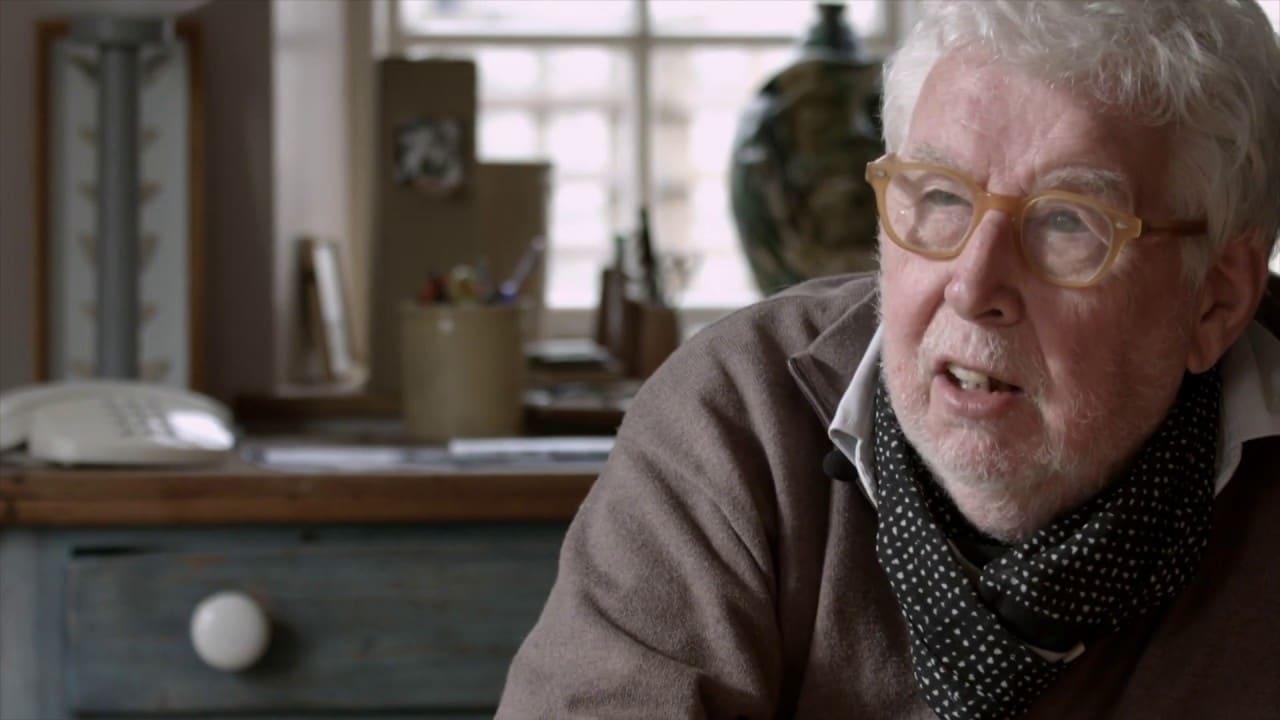Where the Berg concerto violin lives now
NewsThe American violinist Louis Krasner is famed for commissioning and giving the first performances of outstanding concertos by Arnold Schoenberg and Alban Berg.
Krasner, who died in 1995 at the age of 91, played a Gagliano violin.
In the last phase of his performing career, he served as concertmaster of the Minneapolis Symphony Orchestra from 1944 to 1949.
The death has just been reported of Harry Nordstrom, 98, a music professor at Carleton College.
After wartime Army service, Harry played a couple of seasons in the Minneapolis Symphony under music directors Dimitri Mitropoulos and Antal Dorati.
His obituary recounts that his grandson, a hip-hop artist Rolf Haas, now plays the Gagliano violin that Harry acquired from Krasner.
Sic transit harmoniae mundi.






This story is a beautiful symbol of the trajectory of art in the last century.
Yes, including your own.
When you pass Borstlap, your music will be forgotten and you will fade from musical history forever.
How about you? Will your trombone playing transcend time and space?
It may be a disservice to describe Rolf Haas as only a “hip-hop artist.”. He has played the Berg Concerto on that violin.
Has Rolf Harris ever played Berg’s Violin Concerto?
This article does enormous disservice to an honorable and gifted musician working hard to make his way in a challenging profession. I know this from nearly 20 years of professional interaction with Rolf, to wit:
Violinist Rolf Haas is ‘fearless’ (Minneapolis Star Tribune). As a musician who is not ashamed to take risks, Rolf combines virtuosity and an expansive sound palette playing impactful performances to audiences all across the globe. A Minneapolis native, He has won numerous prizes at competitions in the USA, including prizes in MTNA, ASTA, etc, and has been featured in concerts at festivals such as Meadowmount (NY), The International Summer String Academy (Czech Republic), The Sommer-Akademie at the Mozarteum, (Salzburg, Austria), and many others. His primary studies took place with Professor Yair Kless in Graz, Austria, and with Professor Sally O’Reilly at the University of Minnesota. He has played concerts all over the world in various capacities, notable past performances are: soloist with the St.Paul Chamber Orchestra, Featured Soloist for the Georgian Ballet playing Stravinsky Duo Concertante, and a short European tour as soloist playing the Violin Concerto by Alban Berg. Recently, Rolf organized and performed recitals in Berlin (Germany), Krakow (Poland), Chicago (USA), Ibiza (Spain) as well as making his London Debut earlier this year with Pianist Miki Aoki. He has worked with and performed works by World Renowned Composer Kaija Saariaho in Santa Fe, New Mexico. Rolf’s mother is an artist, and Rolf has frequently been involved in performances with visual artists, helping to show a unity between the disciplines. Mr. Haas plays on his grandfather’s Gagliano. The world premier of the Violin Concerto by Alban Berg was played by his grandfather’s teacher Louis Krasner on this instrument. Rolf is also a respected hip-hop artist (emcee/producer). He is one of the founding members of Nocturnal Unit: a group comprised of only his blood related family, 3 cousins and sister. In addition to playing energetic and passionate hip-hop shows in ever-expanding capacities, the group has released 1 full length album and are in the process of releasing a set of 7 singles which combines to make their second full length. Rolf will be releasing his first solo hip-hop album this upcoming season. In some Nocturnal Unit songs, Rolf plays his violin, and occasionally samples classical works. Through this, Rolf hopes to introduce people to classical music in a new way that will promote appreciation of the art amongst those who might never have or wanted to listen to classical music before.
NL owes Rolf an apology. Rolf is a worthy recipient of his violin and does honour to its legacy through his musical endeavors.
I’d say it is a disservice to describe him only as a ‘hip-hop artist’. One only has to look him up online and read his biography to see that he considers himself first and foremost a violinist, but that he is also ‘a respected hip-hop artist’.
Sic transUNT harmoniae mundi.
Harmoniae is nominative plural
Or: sic transit harmonia mundi (nominative singular, which probably what NL meant)
transeunt, to be precise – or transit harmonia.
https://content.thespco.org/people/rolf-haas/
Here is Rolf Haas, playing 2nd violin in the Bruch Piano Quintet in G Minor.
https://www.youtube.com/watch?v=z1_r1pZmmcI
Not bad for a hip-hop artist! The harmony of the world remains in good hands.
Krasner also played in the Cleveland Orchestra for a time, was assistant concertmaster in Pittsburgh when Reiner was in charge, and his performing career did not end in Minneapolis in 1949 – much later he served as concertmaster in Syracuse where he was teaching and performing chamber music. His own teaching lineage included Lucien Capet, Carl Flesch, and Otakar Ševčík — many young violinists would find that a bewildering mix or contradiction of styles and methods. And he was a highly regarded teacher himself (imagine being able to say you studied the Berg or Schoenberg or Alfredo Casella violin concertos under him).
When Krasner was scheduled to perform the premiere of the Schoenberg Concerto with Stokowski and the Philadelphia Orchestra, the orchestra trustees (who felt too much modern music was harming the bottom line) refused to authorize paying a fee to Krasner. They assumed that would end that nonsense. Stokowski paid Krasner’s fee out of his own pocket and the performance went on. Whether that was the last straw for the trustees I do not know, but amazing as it may seem to us today, Stokowski was more or less soon shown out the door in Philadelphia.
Rolf Haas is by all accounts a serious and accomplished concert violinist who has soloed with major orchestras, and I think he would be called a hip-hop artist the way Nigel Kennedy would be called a jazz violinist. Both are legitimately interested in that music but no matter how good they may be at it, I have think are regarded as outsiders looking in by the full-timers.
I have not heard him play but the biographical information I have seen would make him a worthy performer on a Gagliano. So, to respond to John Borstlap’s posting, while the world of art and music is indeed going to hell in a handbasket the current fate of Louis Krasner’s Gagliano is not further evidence of it.
I had the enormous pleasure of being coached by Louis Krasner for a performance of the Brahms Horn Trio for my Masters in Horn at NEC in the mid-70’s. Perhaps the most rewarding musical experience of my life. I’ll never forget him backstage afterward telling me to “now go out and spread the good news.”
Around 1980 or so, I was lucky enough to hear Itzhak Perlman play the Berg with the LA Philharmonic in a concert, broadcast live, worldwide, I believe. It was a daytime concert, and was the first time I ever heard it performed live, a gripping performance. I don’t remember the conductor or anything else on the program. I do remember them telling the audience to try not to make any extraneous noise, coughing, sneezing etc. It did lend some pressure (on the audience) to the performance!
I remember reading an article that Krasner learned the Berg while traveling by train to the premiere. Given the complexity of the piece, it seems unlikely but I’m reasonably sure I’m not inventing a glorified tale.
Three quibbles: Rolf Haas is primarily a professionally trained classical violinist; it would have been gracious to offer condolences on the death of his grandfather (who was his first violin teacher); and the Latin is ungrammatical, unless it is supposed to mean ‘thus he passes over into the harmony of the world’ — which might be a fitting obituary notice for a musician.
In 1994, I was a violin student at NEC in Boston. I was practicing in a first floor room when a woman came in saying that I should clear out as Mr. Krasner (who I had not a clue who that was at the time being a teenager) would be coaching soon. As I was packing up, an elderly man was wheeled into the room. He stopped me from packing up and asked me to play for him as his lesson was not for 15 minutes or so. I played him some solo Bach and while I don’t really remember what he said, I do remember the passion in which he said it. While he was physically limited, his mind and spirit were not. It was only later that I learned who it was.
Krasner was concertmaster in Syracuse in the 60s, and at least a week in 1974 or so too, when a protegé played the Berg there.
For anyone who is interested in Louis Krasner’s recollections of the origin of the violin concerto he commissioned from Alban Berg, there is a New York Times story from 1994 when Krasner was 90.
LISTENERS DON’T USUALLY ponder the circumstances attending the composition of a piece of music. They simply assume that inspiration struck, and the composer sat down and wrote it out. Yet composers, like novelists and painters, are sometimes driven by financial need to create works to order; whether the result turns out to be a potboiler or a masterpiece depends not on its motivation but on the composer’s gifts and application.
One great masterpiece of this century, Alban Berg’s Violin Concerto, might never have been written had Berg not been late with his car payments, and had a persistent young violinist named Louis Krasner not shown up, cash in hand, to persuade him to accept a commission. The haunting, deeply spiritual work Berg wrote will be performed beginning on Wednesday evening by Viktoria Mullova and the New York Philharmonic, led by Kurt Masur, in Avery Fisher Hall.
Mr. Krasner, now 90 and in frail health after a stroke two years ago, remains lucid. He and his wife of 58 years, Adrienne, live in a small apartment in a luxury high-rise on Beacon Street in this Boston suburb. In a recent conversation there, he was manifestly delighted at the opportunity to discuss his unique contribution to music history.
The Berg concerto was given its premiere on April 19, 1936, just four months after the composer’s death, by the Pablo Casals Orchestra in Barcelona. Anton Webern was to have conducted. “By the end of the third rehearsal, we were still on the fifth page of a 76-page score,” Mr. Krasner said, so Hermann Scherchen took over. Webern conducted the second performance, by the BBC Orchestra a month later in London.
But it was the third performance, by the Vienna Philharmonic in 1936, that Mr. Krasner particularly wanted to discuss. “Otto Klemperer asked me to play it for him, and so I did,” Mr. Krasner said. “He liked it very much and programmed it for Sunday morning, which was a prestigious program to be on.” But as the time drew near, difficulties arose.
“The players were pro-Nazi,” Mr. Krasner explained, “and not only did they have a Jew as a conductor — though Klemperer, of course, had long ago converted to Christianity and become a devout Roman Catholic — but they had a Jew soloist as well, playing that Bolshevik music. Klemperer was a big man, with a big deep voice, and he roared at them, ‘No, I will not change the program, and if you don’t let me play it, I’ll issue a statement to the world press, leave Vienna and never come back.’ ”
The orchestra’s concertmaster at the time was Arnold Rose, also Jewish. “He was quite elderly by then,” Mr. Krasner said. “When he announced that he planned to play the piece, that left the orchestra powerless. They had to play it.”
The performance took place as planned, but when it ended, at a signal, the orchestra members walked off, leaving the soloist, conductor and concertmaster onstage. “There were just the three of us there, all alone,” said Mr. Krasner. “Nonetheless, there was a vociferous affirmative response from the public.”
Major composers do not usually receive commissions from obscure young musicians. Yet Mr. Krasner was ambitious and passionate about new music, especially that of the 12-tone school, and he could imagine no better way to spend his inheritance than to commission a composer like Berg.
“I spent a lot of time in Vienna and had friends in the 12-tone circle,” he reminisced. “In the United States I heard ‘Wozzeck’ at the Metropolitan Opera, and I was very struck by it.” In 1935, he heard the Galimir String Quartet play Berg’s “Lyric Suite,” which made an even stronger impression on him, and he married the quartet’s second violinist, Adrienne Galimir.
Mr. Krasner decided to request a concerto from Berg. “The other musicians in Vienna discouraged me,” he recalled. “They said he would never do it, but I persisted. The first time I came to him, he said no. ‘You’re a young, successful violinist,’ he told me. ‘You don’t want to play my music. That won’t help you. Wieniawski, that’s what people want to hear.’
“I finally persuaded him by saying, ‘Maestro, I know your music. If you write this, you’ll have proper consideration for the violin as a lyrical instrument. It could make a breakthrough for you.’ ” Recalling that conversation, Mr. Krasner chuckled at his own chutzpah.
But Berg’s decision to accept the commission, for a fee of $1,500, had a less lofty motivation. “He had just bought a new car, a Ford Model T,” Mr. Krasner explained, “and he couldn’t make the payments anymore.”
Although Berg warned that it would take at least two years to compose a concerto, he wrote his young patron just two months later. Mr. Krasner recounted his words: “You will be surprised, but no more than myself. The concerto is under way. Perhaps this summer we can meet and discuss it.”
Mr. Krasner visited Berg at his small summer house on the Worthersee, in Carinthia. The composer met him at the train station in the Model T. “When we arrived at the house,” the violinist recalled, “Berg pointed across the lake and said, ‘That’s where Brahms wrote his Violin Concerto.’ ”
They entered the house, and Berg asked Mr. Krasner to play. He obediently began with the opening bars of the Brahms Concerto, but Berg stopped him. He started over with the Glazunov Concerto. “He stopped me again,” Mr. Krasner said, “and so I asked him, ‘What do you want me to play? A Bach sonata?’ And he said, ‘No, no sonatas, either. Play! Can’t you play?’ ” Mr. Krasner improvised for hours, as Berg sat quietly drinking coffee and listening. “I realized afterward,” he said, “that everything I like to play is in the concerto.”
Slowly the concerto began to take shape. Its underlying tone row ends with the first four notes of Bach’s chorale “Es Ist Genug” (“It Is Enough”). It has long been assumed that this was a deliberate quotation on Berg’s part, invoking the chorale’s fatalistic message. But Mr. Krasner says Berg did not see the Bach score until after he had composed the tone row, when a friend sent it to him.
“Berg was a very spiritual man, and very superstitious,” Mr. Krasner explained. “When the chorale arrived, he was thunderstruck. He felt that the coincidence was preordained.”
After Mr. Krasner left Carinthia, Berg pressed forward. In the fall, he fell ill with blood poisoning. His widow, Helene, told Mr. Krasner that at the end Berg had worked at the piece feverishly. “He refused to sleep or take food,” Mr. Krasner said. “He would say, ‘No, I can’t. I have no time.’ ” Berg finished the piece in just four months — an amazing feat of concentration and will by a man known as an exceptionally slow and painstaking composer.
Berg gave the work one of the most famous dedications since Beethoven’s “Eroica” Symphony: “To the memory of an angel.” The reference was to Manon Gropius — the beautiful 18-year-old daughter of Mahler’s widow, Alma, and the architect Walter Gropius — who had recently died.
Mr. Krasner can no longer play, give lessons or attend concerts. Among the many recorded versions of the concerto, he particularly likes the one by Anne-Sophie Mutter and the Chicago Symphony, conducted by James Levine, which won a Grammy award a few weeks ago.
Midori came to play for him, which obviously touched him deeply, but otherwise he appears to have lost touch with the world of performance; he had no idea that Ms. Mullova and the Philharmonic were to perform the work. Yet through the masterpiece he cajoled Berg into writing, Mr. Krasner has earned a claim to musical immortality as secure as that of any concert-hall superstar.